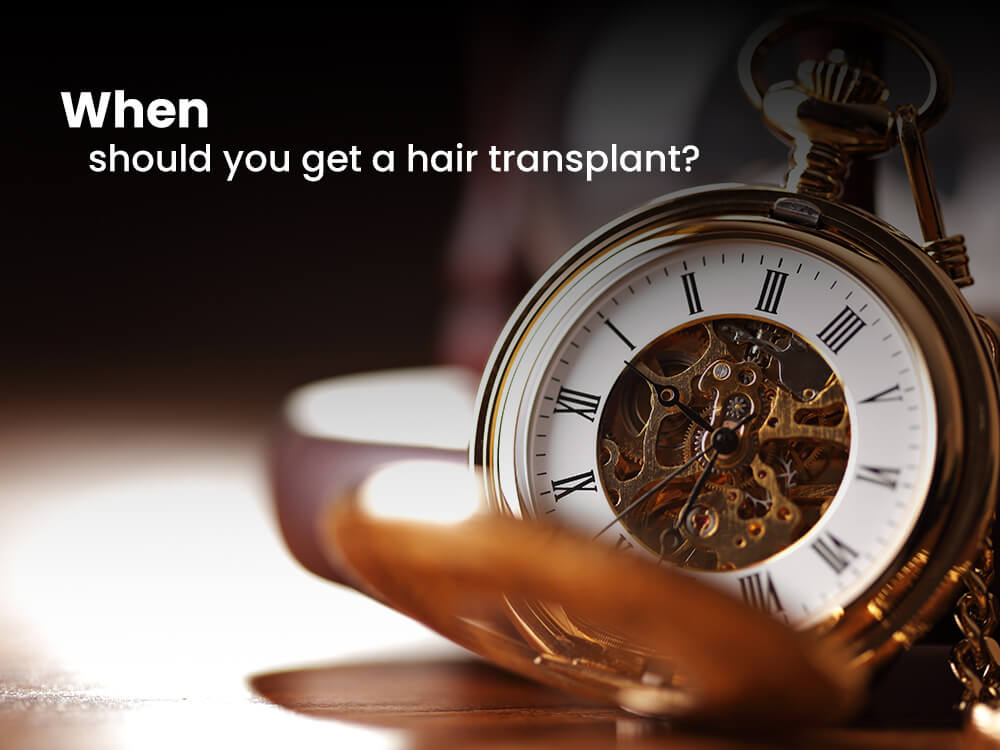
The Perfect Timing for a Hair Transplant: What You Need to Know
When it comes to hair transplants, timing is crucial. Choosing the right time for a hair transplant can greatly impact the success and outcome of the procedure. Factors such as age, hair loss pattern, and overall health should be evaluated before making a decision.
Choosing the Right Time for a Hair Transplant
Before diving into the various factors to consider, it’s important to understand why timing matters. Hair transplants involve the transfer of hair follicles from one area of the body to another. For the best results, the donor area needs to have healthy hair follicles that can be harvested and transplanted successfully.
Additionally, the recipient area should have a suitable environment for the transplanted follicles to thrive. This is where timing becomes essential. Let’s explore the factors that come into play when deciding on the perfect time for a hair transplant.
Factors to Evaluate Before Getting a Hair Transplant
Before undergoing a hair transplant, it’s important to assess your current hair loss situation. Are you experiencing mild hair loss or a more advanced stage of baldness? The severity of your hair loss plays a significant role in determining the ideal timing for the procedure.
In some cases, individuals with early-stage hair loss may be advised to wait before undergoing a hair transplant. This is because hair loss can progress over time, and getting a transplant too early may require additional procedures in the future.
Furthermore, the stability of your hair loss pattern is another crucial factor to assess. If your hair loss is still progressing, it may be wise to wait until your hair loss stabilizes before considering a hair transplant. This ensures that the transplanted hair will not be affected by ongoing hair loss.
In addition to hair loss patterns, your overall health should also be evaluated. Certain medical conditions or medications may interfere with the success of a hair transplant. It’s important to discuss your medical history with a hair transplant specialist to determine if you are a suitable candidate at this point in time.
Moreover, it’s important to consider the emotional and psychological impact of hair loss. Some individuals may feel a sense of urgency to address their hair loss, while others may be more patient. Taking the time to evaluate your emotional readiness for a hair transplant can help ensure a positive experience and outcome.
Furthermore, it’s essential to consider the financial aspect of a hair transplant. The cost of the procedure can vary depending on various factors such as the extent of hair loss, the number of grafts required, and the location of the clinic. Taking the time to assess your financial readiness can help you plan and budget accordingly.
Age-Related Considerations for Hair Transplants
Age is another crucial factor to consider when deciding on the perfect timing for a hair transplant. While there is no specific age limit for hair transplants, different age groups may have varying considerations.
For younger individuals, it’s important to assess the stability of their hair loss pattern. Hair loss at a young age can be unpredictable, and getting a hair transplant too early may not yield long-lasting results. It’s essential to consult with a hair transplant specialist to determine if the timing is right.
On the other hand, older individuals may have different considerations. As we age, the quality of our hair follicles may diminish, making it more challenging to achieve desired results. However, with advancements in hair transplant techniques, older individuals can still benefit from the procedure. It’s crucial to have a thorough consultation with a hair transplant specialist to discuss the potential outcomes based on your age.
Additionally, the overall health of an individual becomes increasingly important as they age. Age-related medical conditions and medications can impact the success of a hair transplant. It’s essential to discuss your medical history and any concerns with a hair transplant specialist to ensure a safe and successful procedure.
Lastly, it’s important to consider the lifestyle and personal preferences of the individual. Some individuals may have certain commitments or events in their lives that may influence the timing of a hair transplant. Taking these factors into account can help ensure a smooth and convenient experience.
Overcoming Challenges: Hair Transplants for Every Age
Regardless of age, hair transplants can address hair loss concerns effectively. However, certain age-specific challenges need to be taken into account to ensure optimal results.
Addressing Age-Specific Concerns in Hair Transplants
In younger individuals, hair transplant specialists may recommend waiting until their mid-20s or later before considering a transplant. This is because hair loss patterns may not stabilize until this age, and additional procedures may be required in the future.
During the early 20s, many individuals experience hair thinning or receding hairlines. While it may be tempting to seek immediate hair restoration, it is important to exercise patience. Hair transplant specialists advise waiting until the mid-20s or later to ensure that the hair loss pattern has fully developed. By waiting, the specialists can accurately assess the extent of hair loss and plan the most effective transplant procedure.
Moreover, waiting until the mid-20s allows for a more accurate prediction of future hair loss patterns. This is crucial in determining the appropriate number of grafts needed for the initial transplant. By considering potential future hair loss, specialists can ensure that there will be enough donor hair available for any future procedures that may be required.
On the other hand, older individuals may experience thinning hair or limited donor area. In such cases, hair transplants may require additional considerations, such as using hair from different areas of the body or using alternative hair restoration methods.
As individuals age, the hair follicles may become weaker and less abundant. This can pose challenges when it comes to finding an adequate donor area for the transplant. Hair transplant specialists are well-versed in dealing with such situations and have various techniques to overcome these challenges.
In cases where the donor area is limited, specialists may suggest using hair from other parts of the body, such as the chest or back. This technique, known as body hair transplantation, allows for a larger donor pool and increases the chances of a successful transplant.
Alternatively, if the individual is not a suitable candidate for traditional hair transplantation methods, specialists may explore alternative hair restoration methods. These methods include scalp micropigmentation, where pigments are tattooed onto the scalp to create the illusion of hair, or non-surgical hair replacement systems, which involve attaching natural-looking hairpieces to the scalp.
Tailoring Hair Transplants to Different Age Groups
Hair transplant specialists are skilled in tailoring procedures to suit different age groups. They have the expertise to identify the most suitable techniques and approaches for each individual. Consulting with a specialist is essential to ensure that the procedure is tailored to your specific age-related needs.
When it comes to younger individuals, specialists understand the importance of considering long-term hair loss patterns. They take into account factors such as family history, rate of hair loss, and potential future hair loss to create a personalized treatment plan. By doing so, they can ensure that the transplant not only addresses the current hair loss concerns but also provides a long-lasting solution.
For older individuals, specialists focus on maximizing the available donor hair and achieving natural-looking results. They carefully assess the condition of the existing hair and determine the most suitable transplantation technique. Whether it’s utilizing body hair or exploring alternative methods, the goal is to restore a fuller head of hair that complements the individual’s age and appearance.
Ultimately, age should not be a deterrent when considering a hair transplant. With advancements in technology and the expertise of hair transplant specialists, individuals of all ages can overcome hair loss challenges and regain their confidence.
Expert Guidance: Consulting a Hair Transplant Specialist
When it comes to making informed decisions about hair transplants, seeking expert guidance is crucial. Consulting a hair transplant specialist can provide valuable insights and help you determine the optimal timing for your procedure.
The Importance of Professional Advice in Hair Transplants
A hair transplant specialist has the knowledge and experience to assess your individual case accurately. They can evaluate factors such as hair loss pattern, overall health, and age to recommend the most appropriate timing for a hair transplant.
During the consultation, they will discuss the pros and cons of the procedure, address any concerns or questions you may have, and provide recommendations based on your unique situation. Their expertise is invaluable in making an informed decision.
Finding the Right Hair Transplant Specialist for Your Age
When searching for a hair transplant specialist, consider their experience, qualifications, and track record. Look for specialists who have a reputation for delivering successful results and have experience working with patients in your age group.
Additionally, read reviews and testimonials to get an idea of their patients’ experiences with the specialist. Don’t hesitate to schedule consultations with multiple specialists to find the one that aligns with your needs and makes you feel comfortable.
Exploring Alternatives: Options Beyond Hair Transplants
While hair transplants offer a reliable solution for hair loss, it’s important to explore alternative options as well. Depending on your age and hair loss situation, non-surgical solutions may be worth considering.
Non-Surgical Solutions for Hair Loss at Different Ages
For individuals in the early stages of hair loss or those who prefer non-invasive options, non-surgical solutions such as medications, topical treatments, and laser therapy may be effective. These alternatives can help slow down or stabilize hair loss, providing an opportunity to delay or avoid surgical intervention.
Considering Other Hair Restoration Methods
In addition to non-surgical solutions, there are alternative hair restoration methods available. These include techniques such as scalp micropigmentation (SMP) and wearing hair systems. These methods can provide a more immediate cosmetic solution for individuals who are not ready for a hair transplant or prefer a non-surgical approach.
Wrapping Up: Making the Right Decision for Your Hair
When considering a hair transplant, it’s important to thoroughly weigh the pros and cons to make an informed decision. Take into account factors such as age, hair loss pattern, and overall health, and consult with a hair transplant specialist to determine the perfect timing.
Weighing the Pros and Cons of Hair Transplants
Pros of hair transplants include a permanent solution to hair loss, natural-looking results, and improved self-esteem and confidence. However, cons such as the need for multiple procedures, potential scarring, and cost should also be considered.
By carefully weighing these factors and consulting with a specialist, you can make a decision that aligns with your goals and expectations.
Final Thoughts on Hair Transplants and Age
The perfect timing for a hair transplant may vary depending on individual factors and age-related considerations. While there is no one-size-fits-all answer, assessing factors such as hair loss pattern, overall health, and consulting with a hair transplant specialist can help determine the optimal time for your procedure.
Remember, hair transplants are a long-term investment in your appearance and confidence. Take the time to research, seek expert advice, and make an informed decision that suits your needs and goals.



